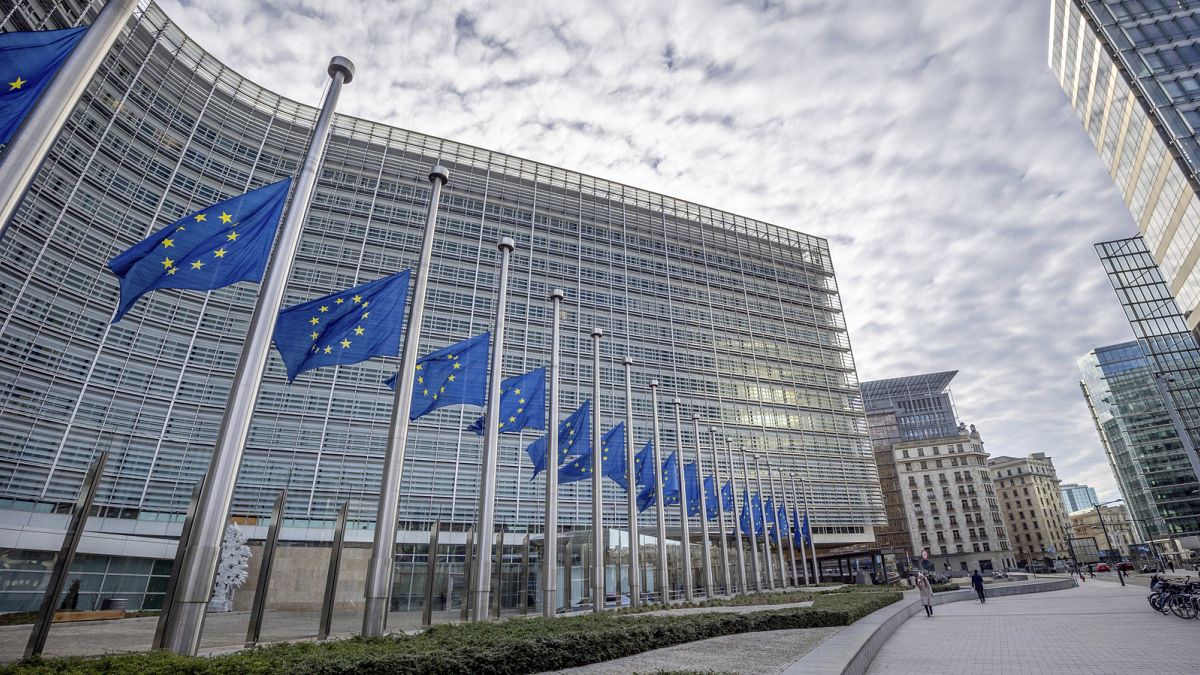Tech companies’ lobbying in Brussels has increased to €113 million a year as efforts to influence the EU’s digital policy intensify, according to new data published on Monday by NGOs Corporate Europe Observatory (CEO) and LobbyControl.
The latest figures reveal that 651 companies and associations collectively spend more than €113 million a year on EU digital lobbying, up by 16.5% from €97 million in 2021.
The top 10 digital corporations alone account for more than a third of the total spending on lobbying at €40 million.
Landmark EU legislation to curb the power of Big Tech - the Digital Markets Act (DMA) and Digital Services Act (DSA) - and the bloc’s new AI rulebook are prompting technology companies to intensify their lobbying power, CEO and LobbyControl say.
Both NGOs are calling for stricter lobbying rules to address the disproportionate influence of the tech sector.
The analysis is based on the annual declarations made by companies in the EU’s Transparency Register. The data therefore only paints part of the bigger picture, as it excludes lobbying activities carried out by consultancies on behalf of corporations.
"Money should not buy access and influence to EU decision-making, but that seems to be exactly what these digital giants are aiming for," Bran Vranken of Corporate Europe Observatory said.
"Their lobbying not only threatens to fatally water down crucial legislation such as the Artificial Intelligence Act, but also undermines democratic decision-making."
Lobbying EU regulators is becoming the "preferred tool" for tech companies to address increasingly demanding EU digital regulation, according to Alberto Alemanno, Jean Monnet Professor of European Union Law at HEC Paris and the founder of The Good Lobby.
“Big Tech’s lobbying differs from other corporations’ as it is characterised by overspending and aggressive tactics,” Alemanno said.
“These companies leverage their expertise by showing off their epistemic primacy – the message being ‘we know best how the technology works, let us worry about it and we promise we will keep you protected’,” he added.
Meta has biggest Brussels lobbying bill
Meta, formerly Facebook, is the biggest lobbying spender at €8 million a year, up from €5.75 million in 2021.
It is closely followed by Apple, which doubled its lobbying spending to €7 million from €3.5 million in 2021.
The top 6 lobby spenders in Brussels are:
- Meta, €8 million
- Apple, €7 million
- Bayer, €6 million
- Google, €5..5 million
- Shell, €5.5. million
- Microsoft, €5 million
Meta also has the highest number of lobbyists on the ground in Brussels, with 17.05 full-time equivalents (FTEs), followed by Huawei (11 FTEs), Intel (10 FTEs) and IBM (7.25 FTEs).
Google, Amazon and Apple have also increased their lobbying workforce in Brussels since 2021.
Of all the companies lobbying the EU on digital policy, 20% are based in the US, while fewer than 1% have their headquarters in China or Hong Kong. Whilst Chinese tech companies TikTok (€900,000) and Alibaba (€600,000) are investing in EU lobbying, their budgets remain far behind those of their US counterparts.
Two companies with their headquarters in the EU have also broken into the top 10 spenders this year. Spain's Telefonica has upped its annual spending since 2021 from €1.5 million to €2 million, while Germany's Deutsche Telekom has doubled its spending from €1 million to €2 million.
According to the NGOs, the growth in overall lobbying spending and the increase in market concentration for the tech industry are worrying.
"Big Tech in particular has a disproportionate number of opportunities to influence policy in their favour due to their enormous resources," Verena Leyendecker of LobbyControl said.
"We need stricter rules for lobbying in Brussels, but also an ambitious enforcement of the EU's Digital Markets Act (DMA) and Digital Services Act (DSA). The DMA and the DSA offer ways to limit the power of Amazon & Co.," she added.
